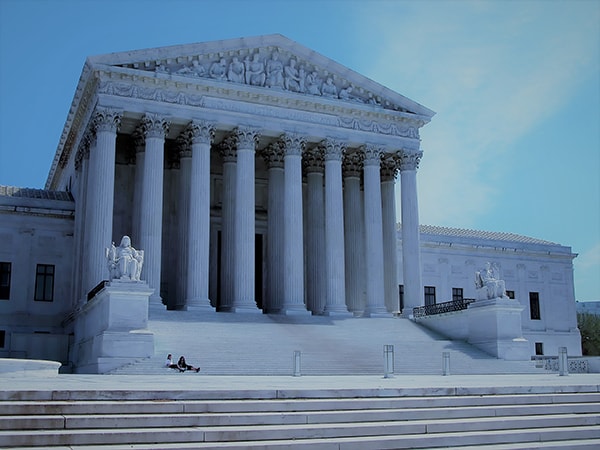Federal Crime Lawyer: Protecting Your Civil Liberties Against Serious Federal Charges
Wiki Article
Debunking the Process of Federal Appeals: What You Required to Know
Navigating the detailed world of government appeals can typically appear like going across uncharted waters for those not familiar with the procedure. Understanding the nuances of appellate court jurisdiction, the ins and outs of submitting a notification of charm, offering a compelling short, and making a convincing dental disagreement are essential parts that can significantly affect the result of a situation. By deciphering the layers of intricacy surrounding federal appeals, individuals can obtain a more clear understanding into the mechanisms that govern this critical point of the legal system.Comprehending Federal Appeals Refine
Exploring the elaborate realm of the government appeals procedure introduces a structured and methodical journey via the judicial system - arizona federal appellate lawyer. Federal allures function as an important system for reviewing choices made by reduced courts. Understanding this process is crucial for any person associated with legal proceedings at the federal levelThe procedure usually starts with an event dissatisfied with a lower court's ruling submitting a notification of appeal. This sets off an evaluation by a greater court, where a panel of courts assesses the lawful debates presented by both events. Briefs detailing the legal thinking behind each celebration's placement are submitted, and dental arguments may be heard to make clear complicated problems.
The appellate court's decision is based on a thorough assessment of the lower court's proceedings and the disagreements provided. As soon as the appellate court gets to a decision, it can attest, reverse, remand, or customize the lower court's judgment, giving quality and finality to the legal disagreement.
Appellate Court Territory Clarified

Appellate courts have territory over details kinds of situations, normally those entailing legal errors, procedural problems, or questions of law instead than accurate disagreements. The jurisdiction of appellate courts is usually described in laws and regulations that control the court system. Understanding appellate court jurisdiction is important for celebrations associated with the allures process as it identifies whether a case is eligible for review and the extent to which the appellate court can intervene in the reduced court's choice.
Declaring a Notification of Appeal
The preliminary step in beginning the federal appeals procedure involves filing a Notice of Appeal with the suitable appellate court. federal appeal lawyers hobbs act. This vital record officially alerts the court and the various other celebrations included in the case that the appealing party plans to seek an evaluation of the reduced court's decision. Submitting a Notification of Charm is a stringent procedural demand that sets the appellate procedure movingWhen preparing the Notice of Charm, it is necessary to make sure compliance with the certain rules and standards of the pertinent appellate court. The paper has to generally consist of details such as the instance name, the reduced court's name, the day of the judgment being appealed, and a concise declaration showing the premises for the allure.
Timeliness is of the significance when filing a Notification of Charm. Missing the deadline for submitting this document can result in the charm being dismissed, underscoring the significance of precise and punctual initiation of the charms process. It is suggested to look for legal support to browse the intricacies of filing a Notice of Appeal successfully.
Instruction and Oral Debate
In the appellate process, offering composed briefs and taking part in oral arguments play essential duties in advocating for the appealing party's setting prior to the appellate court. Briefs are detailed lawful files that lay out the celebrations' debates, legal authorities, and evaluation sustaining their positions. These written submissions supply the court with a thorough understanding of the realities of the instance, the pertinent law, and why the appealing party believes the reduced court's choice must be overturned.Complying with the entry and review of the briefs, oral disagreements provide the parties a possibility to further clarify their positions, deal with any type of inquiries the appellate judges may have, and emphasize essential factors from their written briefs. Oral debates are a possibility for the attorneys to persuade the judges with spoken campaigning for and responses to questions from the bench.

Receiving the Appellate Court Choice

Conclusion
Comprehending the appellate court jurisdiction, filing a notice of appeal, preparing briefs, and providing dental disagreements are all crucial elements of this process. Eventually, receiving the appellate court choice can supply clearness and resolution to legal disagreements.As we progress from understanding the government allures process to studying the complexities of appellate court territory, a fundamental element comes to light regarding the authority and limits of these higher courts in the legal landscape. Appellate court territory refers to the scope of instances that a certain appellate court has federal appeal lawyers in maine the power to choose and evaluate upon. Unlike trial courts that hear instances for the initial time, appellate courts are limited to assessing decisions made by reduced courts. Understanding appellate court territory is important for parties involved in the appeals procedure as it figures out whether a situation is eligible for review and the level to which the appellate court can interfere in the lower court's decision.
Whether the appellate court attests, turns around, or remands the lower court's choice, comprehending the ramifications of the ruling is critical for all events included in the appellate process.
Report this wiki page